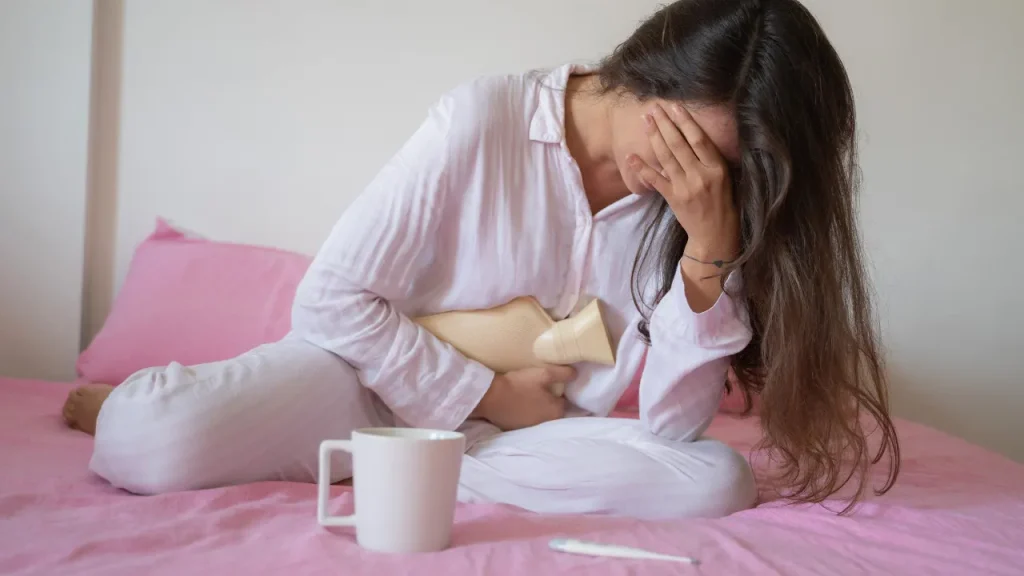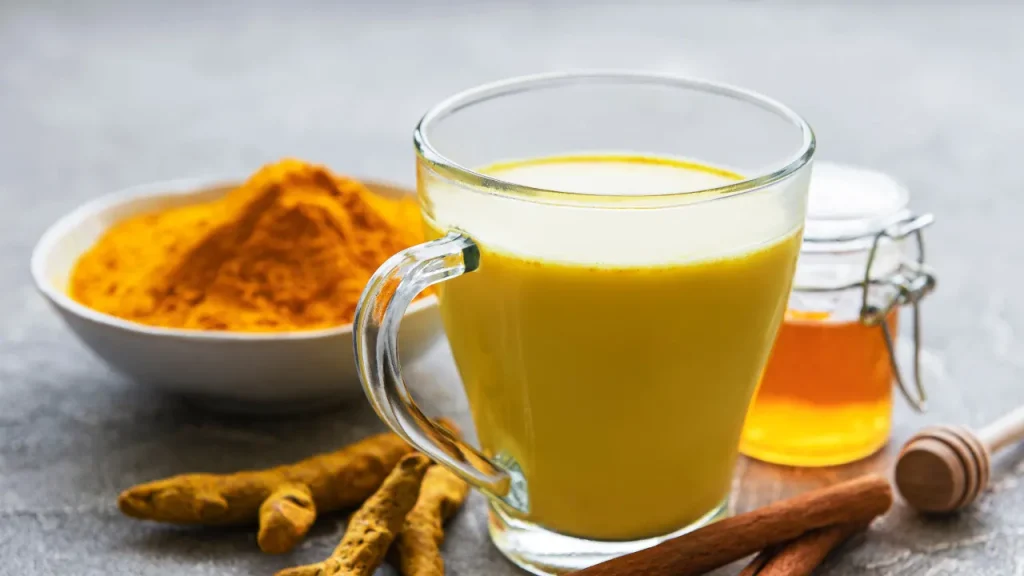Almost like clockwork, it comes around every month: bloating, hormonal acne, tender breasts, and mood swings. Sometimes, you just want to sleep until the symptoms are gone, but what if you are one of the many women who struggle with sleeplessness leading up to your menstrual cycle? It’s not your imagination. Many women experience PMS-related sleep disruptions, also known as PMS insomnia. In this article, we’ll dive into the causes, symptoms, and potential treatments for this condition. We’ll also suggest a premium supplement to help alleviate these symptoms. Together, we’ll find a solution to help you reclaim your peaceful sleep.
You May Also Like:
Dr. Teal’s Sleep Spray vs DELTA BrainLuxury
Restore Your Sleep and Rejuvenate Yourself: PMS Insomnia Solutions is an original (OptimalHealthNews) article.
Understanding PMS insomnia
What is PMS insomnia?
Premenstrual Syndrome, commonly known as PMS, encompasses a range of symptoms that women experience leading up to their menstrual periods. Insomnia tends to accompany these symptoms; PMS insomnia manifests as difficulty falling asleep, staying asleep, and maintaining good sleep quality. These sleep issues can interfere with your daily life, leaving you feeling exhausted and irritable.
The impact of PMS insomnia
PMS alone can be difficult to tackle due to its broad range of physical and emotional symptoms, such as mood swings, abdominal pain, and breast tenderness. However, the overall effects can be much more troublesome when your PMS symptoms include insomnia.
The role of hormonal fluctuations
Hormonal fluctuations are behind PMS insomnia. As your monthly cycle progresses, estrogen and progesterone levels rise and fall. These hormonal fluctuations can interfere with your body’s internal clock, making it difficult to maintain regular sleep patterns. Estrogen is especially known for affecting sleep regulation, causing issues with your sleep-wake cycle.
PMS and the circadian rhythm
Your body’s circadian rhythm controls your sleep-wake cycles; hormones are pivotal to synchronizing this rhythm. When your hormones fluctuate during PMS, they can upset this balance, making it challenging to achieve uninterrupted sleep throughout the night.
Below, we’ll discuss the causes, symptoms, and possible treatment options for PMS insomnia. We’ll also discuss how nutritional supplements, such as Healthy Truth’s Golden Milk Cinnamon Spice Latte, may provide support in addressing this issue.

The causes of PMS insomnia
To effectively address PMS insomnia, it is crucial to gain an understanding of the underlying factors contributing to this condition. Multiple interconnected factors contribute to PMS insomnia, helping reveal why women often experience this phenomenon during their menstrual cycles.
Hormonal fluctuations
Hormone fluctuation is a primary cause of PMS insomnia. The menstrual cycle orchestrates a complex interplay of hormones, with changing levels of estrogen and progesterone. As women approach menstruation, these hormonal changes are particularly drastic. Notably, estrogen affects the neurotransmitters that control your sleep-wake cycle.
Physical discomfort
Physical discomfort is another contributor to PMS insomnia. Women often experience bloating, breast tenderness, and abdominal cramping during PMS, which can make finding a comfortable sleeping position challenging. This discomfort can lead to restlessness and sleep disturbances.
Emotional stress
Anxiety, mood swings, and irritability can result in a racing mind when you should be winding down for sleep. This emotional stress triggers the secretion of stress hormones like cortisol, further affecting your sleep patterns.
Increased sensitivity to pain
Some studies have shown that the menstrual cycle can heighten pain sensitivity, leading to more discomfort at night and making it harder to sleep.
Inflammation and sleep
Inflammation has been proposed as a link between hormone fluctuations and sleep disturbances. Proinflammatory cytokines, which regulate inflammation, are increased during PMS. These markers can also disrupt your sleep-wake cycle.
Neurotransmitter imbalance
The neurotransmitters within your brain also impact sleep regulation. During PMS, these neurotransmitters can become imbalanced, leading to sleep disruption. Changes in estrogen and progesterone levels can affect serotonin, a neurotransmitter that controls mood and sleep.
Recognizing the symptoms
Before you can address PMS insomnia, you must first recognize its symptoms. Knowing what signs to look for can help you find appropriate treatments and strategies to improve your sleep quality during PMS.
Identifying PMS insomnia symptoms
1. Difficulty getting to sleep: One of the primary symptoms of PMS insomnia is the inability to fall asleep easily. Women with PMS insomnia may lie awake for long periods, unable to drift off to sleep.
2. Frequent nighttime awakenings: If you wake up multiple times during the night, you may be experiencing PMS insomnia. These interruptions can prevent your body from entering restorative sleep.
3. Poor sleep quality: If you wake up in the morning still feeling exhausted, you may be suffering from poor sleep quality. Women with PMS insomnia often have restless sleep, leaving them tired upon waking.
4. Fatigue during the day: The restless sleep linked to PMS insomnia can cause daytime fatigue. Daytime fatigue can affect your overall daily performance and quality of life.
5. Irritability and mood swings: Lack of sleep worsens mood swings and irritability, common PMS symptoms. This emotional toll can affect relationships and mental health.
6. Decreased concentration and memory: Not getting enough sleep can also adversely affect cognitive functions like concentration and memory retention.

Prognosis and impact on well-being
Understanding PMS insomnia is vital for effectively managing this condition. While its effects are temporary and cyclical, they can impact many facets of your life.
The prognosis of PMS insomnia
Because PMS insomnia is linked to your monthly cycle, it is considered a transient condition. These symptoms typically only occur during the days leading up to your period. In most cases, the symptoms start to subside once your period begins.
However, the duration and severity of PMS insomnia can vary for each person. Some women may experience severe, persistent PMS insomnia that lasts beyond their periods. Factors such as your health, hormone changes, and underlying sleep disorders can impact how long or severe your PMS insomnia will be.
Impact on quality of life
PMS insomnia can affect many aspects of your life, including:
1. Stress and mental well-being: Sleep deprivation can take an emotional toll, exacerbating stress, anxiety, and mood swings. Managing your emotions becomes more difficult when your sleep quality is poor.
2. Daily functioning: Daytime fatigue accompanying PMS insomnia can negatively affect your daily functioning. You may have trouble concentrating, making decisions, or remembering things, which makes performing effectively challenging.
3. Productivity: Those with PMS insomnia often experience reduced productivity at work or school. Fatigue and reduced cognitive function can hinder your efficiency and performance.
4. Interpersonal relationships: Mood swings and irritability can strain relationships, which may impact your communication on both personal and professional levels.
Treatment options for PMS insomnia
Several conventional approaches can assist in managing PMS insomnia:
Lifestyle modifications: Maintaining a regular sleep schedule, practicing relaxation techniques, and avoiding caffeine and alcohol close to bedtime are effective strategies to help improve your sleep quality.
Medications: Your healthcare provider may recommend over-the-counter or prescription sleep aids to help you sleep.
Hormone therapy: In cases of severe PMS insomnia, your doctor may suggest hormone therapy to regulate your hormone fluctuations.
Exploring nutritional supplements: There has been a growing interest regarding the potential of natural supplements to manage PMS insomnia. Healthy Truth’s Golden Milk Cinnamon Spice Latte has recently gained interest as one such supplement.
The potential role of Healthy Truth in supporting PMS insomnia treatment
Healthy Truth’s Golden Milk Cinnamon Spice Latte is a nutritional supplement enriched with curcumin, the primary component of turmeric. Curcumin has been explored for its anti-inflammatory and antioxidant benefits, which may address some underlying causes of PMS insomnia.
Anti-inflammatory properties: Because inflammation is linked to sleep disturbances, curcumin’s anti-inflammatory benefits could help improve sleep quality. When you sleep, your body produces cytokines, substances that help reduce inflammation in the body. However, when you experience sleep disturbances, inflammation levels can rise, creating a vicious cycle that can lead to insomnia. Curcumin’s anti-inflammatory properties may help mitigate the effects of sleep disturbances and reduce the risk of further insomnia.
Antioxidant properties: Curcumin’s antioxidant benefits may help fight oxidative stress linked to sleep issues and mood swings.
Stress reduction: Studies suggest that curcumin may boost mood and reduce stress, potentially alleviating the emotional stress associated with PMS insomnia.
Melatonin production: Stress can negatively affect serotonin levels, which are crucial for melatonin production, the hormone that regulates sleep-wake cycles. Your body needs to produce enough serotonin during the day so your body can convert it to melatonin at night. Curcumin may help prevent serotonin reduction caused by stress, thus promoting melatonin production at night.

The best way to enjoy Golden Milk Cinnamon Spice Latte
There’s something undeniably comforting about a cinnamon spice latte, especially during the fall season. The brand recommends whisking Golden Milk Cinnamon Spice Latte powder into a glass of your choice of milk. You have various options to choose from, including dairy options such as whole, 1%, or 2%, as well as non-dairy options like oat, almond, or soy milk.
Remember the days when, as a child, you were given warm milk to help you sleep better? It’s not just a nostalgic memory; there’s a scientific basis for it. Milk contains tryptophan, a substance that plays a role in producing both melatonin and serotonin. For those who aren’t sensitive to dairy, adding cow’s milk to your Golden Milk Cinnamon Spice Latte can help maximize its effects against PMS insomnia.
The brand recommends making their latte a part of your nighttime ritual by whisking it into warm milk. This sensory experience not only contributes to better sleep but also provides the comfort of enjoying a latte without the worry of it keeping you awake all night.
Restoring your sleep
PMS insomnia can be challenging to address, but it is possible. By understanding the causes and symptoms, exploring available treatments becomes more manageable. This knowledge empowers you to take proactive steps toward restoring your sleep and quality of life. Drinking a relaxing glass of Golden Milk Cinnamon Spice Latte can contribute to alleviating the symptoms of PMS insomnia, ultimately improving your quality of life.
While Healthy Truth’s Golden Milk Cinnamon Spice Latte has impressive potential benefits, it should be viewed as part of a holistic approach to managing PMS insomnia. Make sure you consult your healthcare provider to create a customized plan that addresses your individual needs.
Why choose a natural supplement for PMS insomnia?
Opting for a natural supplement to address PMS insomnia offers distinct advantages. Sleep medications can lead to dependency and tolerance issues. What might work for you today might lose its efficacy over time. Dependency can also cause adverse physical and emotional responses. Finding a natural solution to sleep disturbances can benefit your overall health and wellness. So, consider trying a natural supplement for PMS insomnia and bid farewell to the nights of counting sheep.

Further reading:
Sleep Foundation: PMS and Insomnia
Psychology Today: PMS and Insomnia: What to Do?
Livestrong: How Does Serotonin Affect Sleep?
Huffpost: Six Ways Curcumin Can Help You Sleep More and Stress Less
National Library of Medicine: Curcuminoids, a major turmeric component, have a sleep-enhancing effect by targeting the histamine H1 receptor
Important Note: The information contained in this article is for general informational purposes only, and should not be construed as health or medical advice, nor is it intended to diagnose, prevent, treat, or cure any disease or health condition. Before embarking on any diet, fitness regimen, or program of nutritional supplementation, it is advisable to consult your healthcare professional in order to determine its safety and probable efficacy in terms of your individual state of health.
Regarding Nutritional Supplements Or Other Non-Prescription Health Products: If any nutritional supplements or other non-prescription health products are mentioned in the foregoing article, any claims or statements made about them have not been evaluated by the U.S. Food and Drug Administration, and such nutritional supplements or other health products are not intended to diagnose, treat, cure, or prevent any disease.
